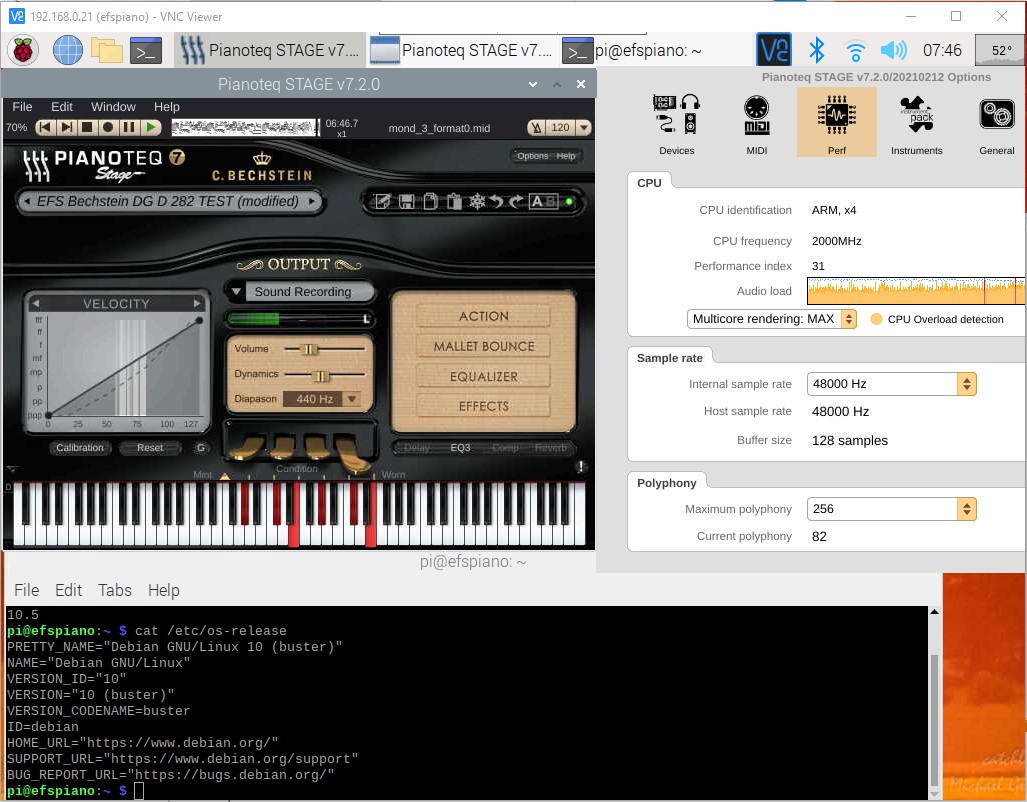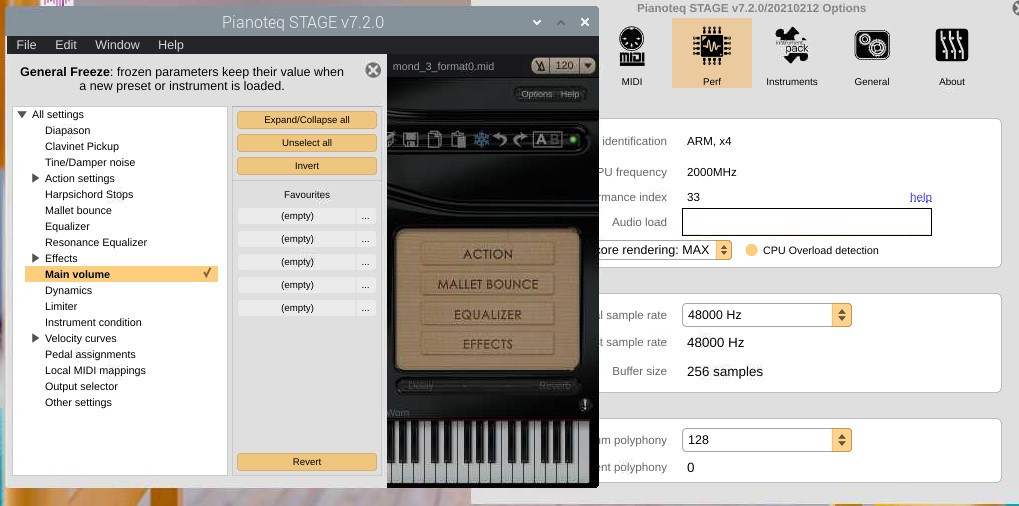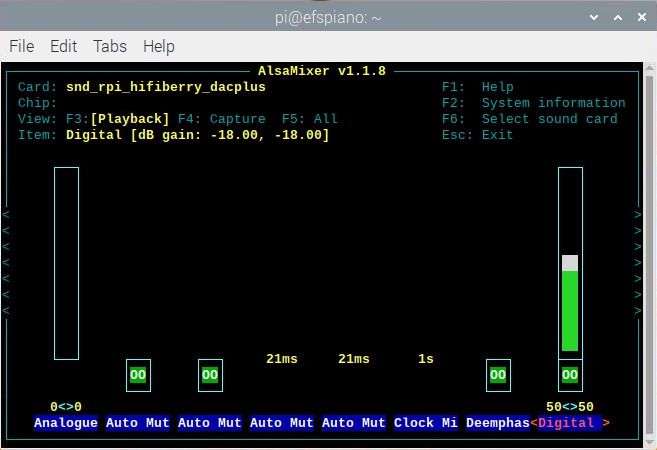Topic: Raspberry 4 Pi B 4GB 64bit OS + HIFIBerry DAC w PI of 32
After 4 days of testing various settings my Raspberry Pi 4B running Pianoteq 7 gives me a PI of 32 and a stable well running environment, and was incredibly easy to configure. I would love to hear your results with alternate configurations and DACs.
HW configuration
• Computer: Raspberry 4 Pi B 4GB
• OS: 2020-08-24 64 bit OS + updates
• Heatsinks on CPU, memory and USB controller
• DAC: HIFIBERRY DAC+ PRO XLR
• Steel case https://www.hifiberry.com/shop/cases/st...-xlr-pi-4/
• External fan mounted on case
• Headless – access via VNC
Midi file: Sonata No. 14 C# minor (Moonlight) , Opus 27/2 (1801) Movement 3
http://www.piano-midi.de/midis/beethove...ormat0.mid
• Overclocked @ 2000Mhz
• Performance index 32
• Audio Output snd_rpi_hifiberry_dacplus, HIFIBerry DAC+ Pro HiFi PCM512x hifi-0; direct hardware device without any conversions
• Host sample rate 48000Hz
• Internal sample rate 48000Hz
• Bit depth 32 bits
• Buffer size 128 samples (2.7ms)
• Max polyphony 256
• No effects, no delay, no reverb
• Max temp 56 degrees
• Average temp loaded 50 degrees
• Idle temp 40 degrees
• Only a handful of red lines observed in audio load, no audible defects.
Notes and Observations:
• A good power supply is CRITICAL for stability.
• The OKDO power supply included in the kit I purchased did not work properly and would not drive USB keyboard.
• The Raspberry Original Power supply improved stability and allowed used of USB keyboard
• The HIFIBERRY DAC+ PRO XLR precludes the use of a CPU fan, which I believe is a necessity.
• Without a fan the temperature went into the mid 70’s.
• Back of case was drilled out and cpu fan mounted externally
• An external DAC is probably a better solution
• VNC installed from https://www.realvnc.com/en/connect/down...spberrypi/
• Youfou’s brilliant configuration script was used to configure the Pianoteq installation. See this thread: https://forum.modartt.com/viewtopic.php?id=8268 No other changes made.
• My intended use is in a church connected to a Yamaha NU1, the output will go via XLR to a Behringer XR18 mixer where effects like EQ and reverb will be applied.


